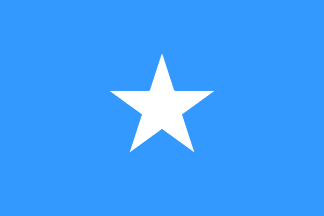U.S. Strikes Again at Militants in Somalia
American soldiers are back at it, trying to kill militants...this time in Puntland. The Bush Administration's secretive policy in Somalia is at best disjointed. What Somalia needs if for the world to help rebuild the infrastructre of their country. And why don't those American ships turn their attention to stopping the pirates out there from hijacking foreign aid ships?
==============
From the NY TIMES:
NAIROBI, Kenya, June 2 — American forces struck inside Somalia on Friday, bombarding a mountainous area where suspected militants were hiding out, Somali officials said Saturday. It was the third known American strike on Somali soil this year.
According to Somali security forces, an American warship fired cruise missiles into the area after two boatloads of heavily armed gunmen landed at Bargal, a small fishing village on the north Somali coast, and then escaped into the mountains.
Hassan Dahir, the vice president of Puntland, a semiautonomous region of Somalia, said that eight Islamist militants were killed, including one who was an American citizen, according to documents found on his body.
Mr. Dahir also said that three American Special Operations soldiers were on the ground, helping Somali security forces.
“Three Americans came into the mountains with us,” Mr. Dahir said. “They are counterterrorism experts and they are investigating the computers that the militants were carrying.”
American officials declined to comment on this information. But the operation Mr. Dahir described was congruent with an attack in early January in which American forces bombed an area in southern Somalia and then sent in a small contingent of Special Forces soldiers to investigate the remains of suspected militants. A few weeks later, American forces struck again, trying to kill a militant Islamist leader.
On Saturday, Bryan Whitman, a Defense Department spokesman, said in an e-mail message, “This is a global war on terror and the U.S. remains committed to reducing terrorist capabilities when and where we find them.”
The statement went on to say, “The very nature of some of our operations, as well as the success of those operations, is often predicated on our ability to work quietly with our partners and allies.”
Mr. Dahir said the militants, thought to number around 15, were from Somalia’s recently ousted Islamist administration and that they had come by boat to northern Somalia in an attempt to cross the Gulf of Aden and escape the country.
Among the eight killed, he said, were men from Eritrea, Yemen, England and Sweden. He said that Somali officials contacted American officers in Djibouti, where there is a large American military base, after a gun battle on Friday evening in which the militants wounded four Somali security agents and then melted into the mountains. He said that an American destroyer moored off Bargal fired the cruise missiles into the area.
The strike fit a pattern of a broader American strategy to hunt down Islamist militants in the Horn of Africa, especially Al Qaeda operatives. American officials have accused Islamist clerics in Somalia of sheltering Al Qaeda agents, including the mastermind of the American Embassy bombings in Kenya and Tanzania in 1998.
American forces played an influential but behind-the-scenes role in helping overthrow the Islamist movement that controlled Somalia for six months last year. In late December, Ethiopian troops, aided by American satellite imagery and battlefield intelligence, routed Islamist forces. That paved the way for Somalia’s internationally recognized but weak transitional government to take loose control of the capital, Mogadishu, for the first time.
Since then, American warships have been patrolling Somalia’s 1,880-mile coastline. American officials say that several Qaeda suspects are still inside the country.
The attack on Friday punctured what had been a relatively peaceful period for Somalia. Over the past several weeks, life in Mogadishu, the scene of intense fighting in March and April, has been improving, with policemen patrolling neighborhoods and sanitation crews lifting enormous amounts of garbage from the streets. The transitional government said security was finally good enough to hold a major reconciliation conference in mid-June, though there were still some concerns about how to pay for the conference.





No comments:
Post a Comment